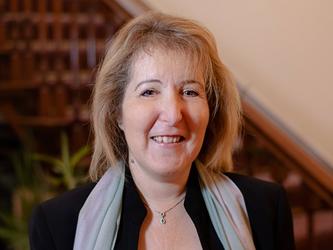Where credit is due
Would you like to be introduced to clients such as P&G, Mastercard and Bank of America? How about procurement helping you to get onto the roster? Some free training programmes from Dell or EY? Learning from business owners across the world? Awards?
If you answer ‘yes’ to any of these questions and you own a diverse business, consider accreditation.
If you are a corporate client wanting to encourage innovation, inclusion, flexibility, speed and a fresh perspective, join not-for-profit network WEConnect International to meet diverse businesses.
It wasn’t until I moved to the US that I saw the importance of recognising Mesh Experience as a women-owned business. In fact, during the Covid-19 pandemic, it has been heartening to receive emails from corporates checking on our status.
There is a benefit to corporates in encouraging diverse supply, beyond simply doing the right thing. Let’s check out some facts.
- Jigsaw Research, a certified women-owned business, won Global Agency of the Year at the MRS Awards 2019
- Boston Consulting Group found that increasing the diversity of leadership teams leads to more and better innovation and improved financial performance
- News publications, including the Guardian, have reported that countries with women leaders have fared less badly during the pandemic.
Yet diverse businesses struggle to get funding. In 2018, women-owned businesses in the US received only 2.2% share of $130bn in venture capital funding. Whether through unconscious bias or other factors, it is tough for diverse businesses to grow. This is where certification plays an important role.
WEConnect International considers four criteria for Women’s Business Enterprise (WBE) certification: ownership, management, control, and independence. To qualify, a business must be at least 51% owned, as well as managed and controlled, by one or more women.
Mesh became certified as a women-owned business five years ago. WEConnect certifies businesses outside the US and WBENC within the US. Each year, there is a joint conference and in 2015, this took place in Austin, Texas. There was a WEConnect day for around 100 delegates to meet corporates in roundtable discussions and hear inspirational presentations.
The next day was the WBENC conference and fair. Thousands of women entrepreneurs attended and there were hundreds of corporate stands. By year two, I had learned that a clear plan of action was essential. Last year, our managing director North America, Dana DiGregorio, attended and made 42 contacts.
However, this does not mean 42 new clients. Even if the diversity person makes the introduction to the marketing/insight procurement person, you still need to meet the chief marketing officer or head of insight. It’s unlikely that a head of insight will simply take the advice of their procurement colleagues on choice of agency. However, I have met many heads of insight that say it is difficult to get onto the procurement roster. This is when you play your trump card, and help the insight director by explaining that you know Ms/Mr xyz in procurement and that, as a diverse business, they are keen to help you through the process. This strategy has enabled Mesh to work with a major bank.
If you are an insight director, check whether your company is a member of WEConnect (and lobby for it to become one, if not). This could help you to bring on board more easily new, diverse, innovative companies that you are keen to try working with.
We’ve also discovered that some existing clients were WEConnect members, including Delta Air Lines. In 2017, we were named the Delta Air Lines women-owned business of the year, which involved a reception in Atlanta, an introduction to the chief executive, Ed Bastian, and a video of our company played at the awards ceremony. For the Mesh team working on Delta and the rest of the agency, having our work publicly acknowledged was enormously motivating. This publicity also played well with other corporate diversity partners as well as our insight clients at Delta.
Meeting other women-owned businesses encourages innovation and the support of shared knowledge in running companies. For example, Mesh has been working with Forensic Pathways to create a dark web monitor for banks. Fraud has become more of an issue, particularly during Covid-19. A data breach can cause a massive reputational problem for companies, so it is not only important to measure brand equity but to monitor data that could erode this too.
Maggie Berry, executive director for Europe at WEConnect, helps make connections with corporates and other WBEs as well as making introductions to organisations, such as the Dell Women’s Entrepreneur Network. These can offer training and resources, from legal to marketing, technology and funding. I was also delighted to be invited to speak to 200 women entrepreneurs in Costa Rica about internationalising Mesh and describing lessons I had learned.
The key benefits you could see from certification include:
- Winning business and help through procurement
- Acknowledgement through awards
- Innovation through working with other WBEs
- A network to call upon for help with business questions and training opportunities
- Inspiration from other women’s businesses, some with revenues of more than $1bn.
For more information: weconnectinternational.org
Fiona Blades is president and chief experience officer at Mesh Experience
This article was first published in the July 2020 issue of Impact.

We hope you enjoyed this article.
Research Live is published by MRS.
The Market Research Society (MRS) exists to promote and protect the research sector, showcasing how research delivers impact for businesses and government.
Members of MRS enjoy many benefits including tailoured policy guidance, discounts on training and conferences, and access to member-only content.
For example, there's an archive of winning case studies from over a decade of MRS Awards.
Find out more about the benefits of joining MRS here.












0 Comments